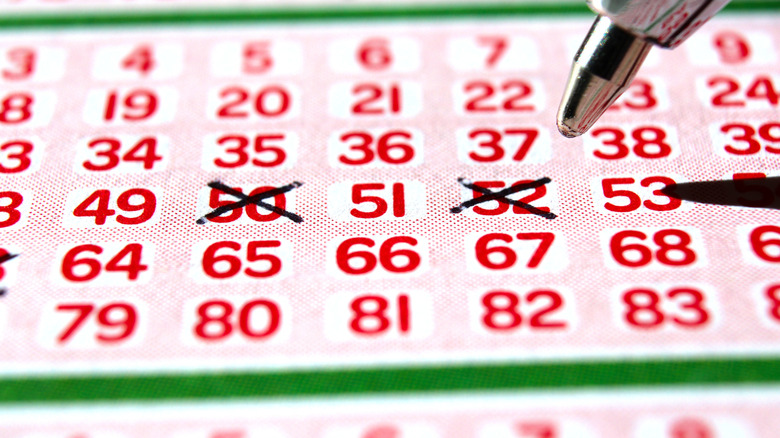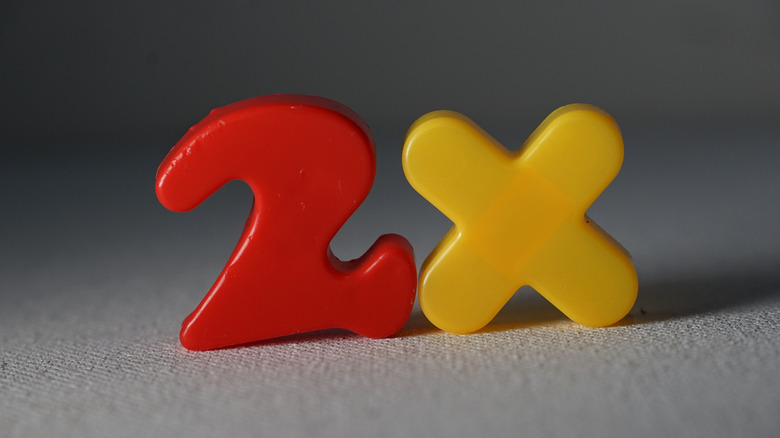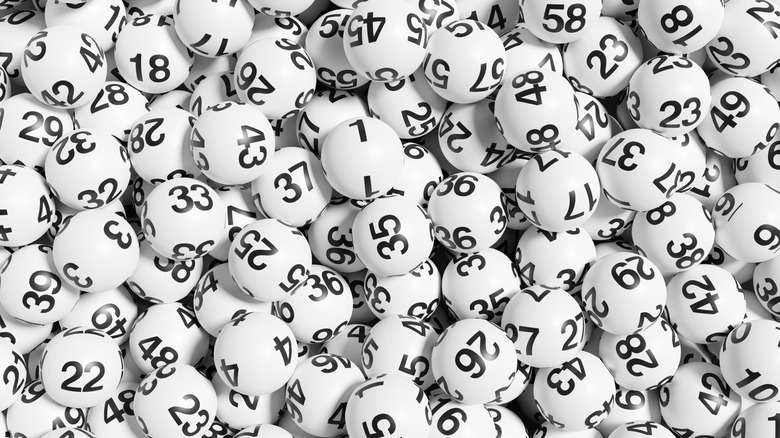The Lottery Feature That Can Increase Your Winning Odds In Certain US States
The lottery is a major force in modern culture. While any particular player's odds of winning are drastically small, this doesn't stop people from dreaming about what they'd do with a major windfall from a successful lottery draw. The giant billboards advertising ludicrous prize pots certainly helps, but even without interacting with these reminders of the lifechanging sum of money that stands to be won are any given time, people love the lottery. An estimated $125 billion was spent on lottery tickets in 2024, with roughly 40 American million households supporting habitual lottery players.
With the outsized presence of any game of chance remaining firmly within the cultural zeitgeist of America (and indeed the world), any strategy you might find to improve your odds is likely a welcome one. Whether you're a consistent lottery ticket buyer or someone on the fringes of the practice who only shells out the cash when the prize money ramps up into outer space, knowing your odds and working at improving them is a big deal. Fortunately for players across 24 states scattered around the U.S., there's a built in feature that can change the concept of winning (and losing) in a big way. Rather than buying a ticket for a single draw, many players have an additional option to keep their numbers alive even after the balls are pulled and the winning sequence is announced.
The Double Play offer costs an extra $1 and unlocks a second draw
In many U.S. states alongside Puerto Rico and the U.S. Virgin Islands, lottery players have the option to buy a Double Play ticket for an extra dollar. This doesn't shift your odds of winning the draw, but it does provide a different sort of value. A Powerball ticket starts at $2 and can be around $4 in some states. That's a $2 or more entry ticket for a 1 in almost 300,000,000 shot of winning the grand prize. The odds aren't in your favor, but you can lock in additional value with the Double Play option. This is an additional entry for an extra $1 buy in. That gives you access to a second draw, cutting the cost to play for a second time in half or more.
Adding the Double Play offer doesn't improve your odds in the traditional sense, but it does change the cost of buying into those odds. At $4 per ticket and a weekly entry into the drawing, you'd end up spending $16 for four draws with a standard purchasing strategy, or $15 for six draws (and $20 for eight) by tacking on the Double Play. Adding in one extra ticket means either spending $20 for five standard draws, or three extra with the addition of the Double Play offer. Stacked over time, you'll end up piling on numerous additional entries for a far more cost effective balance.
Other lottery strategies can also play into your favor
Reducing your costs isn't the only strategy that should make its way into your lottery arsenal. However, on this note, it's also a great idea to consider joining or creating a lottery pool with friends. Lottery pools include likeminded players who pool their resources to buy more tickets. This gives a group of people a greater chance of picking the winning numbers while reducing their buy in costs. The approach centers on one of two options: Pools will either buy more tickets and agree to split the winnings if they do manage to hit the jackpot, or buy a limited number of tickets while spreading the cost out. More tickets means a greater chance of picking correctly, while fewer entries offers essentially the same exposure that a player might have while going it alone without having to constantly buy their own tickets.
There's also the "70 Percent Rule," which suggests that a balanced number picking strategy that seeks to avoid clumping selected numbers. This is a mathematical approach that adds up the highest and lowest sums of potential winning numbers and seeks to concentrate your picks within roughly a midrange figure. This helps distribute selected numbers in a way that may improve your ticket's randomness and natural distribution in a way that tries to mirror the randomly selected winning numbers during the draw.


